- Latest articles

Adulthood is scary, but with the right company, you can learn to thrive in grace and strength!
Jesus treasured friendship and hand-picked 12 men to walk closely with Him and learn from Him. Of course, there were also women friends. Remember the sisters, Mary and Martha? And Mary Magdalene? The fact that the Gospels mention these friendships reveals that the people in the fabric of our lives are very important.
Jesus even called His disciples friends! “I no longer call you servants, because a servant does not know his master’s business. Instead, I have called you friends, for everything that I learned from my Father I have made known to you.” (John 15:15) It is an honor and elevation to be called a friend of His! In the same way, it’s important for us to recognize that being a friend to one another is an honor. It is a role to be taken seriously. As Jesus reminds us: “Whatever you did for one of the least of these brothers and sisters of mine, you did for me.”(Matthew 25:40) Your presence, or lack of it, is impactful to another. Your actions, support, and prayers can make an immense imprint on the life of another person. It is a role to steward well, as with any of the roles we have been entrusted.
A Gift Par Excellence
In adulthood, many lament at the lack of friendship or the difficulty of making friends. The ache of a heart longing for dear friends is very real. Friendship is truly a gift, a gift that one should most definitely pray for.
The impact of true Christian friendship on a person’s life is very deep. So it is important to carefully ‘choose’ the people with whom you entrust this title. A friend who does not share the same values can be closer to an enemy. Proverbs 27:17 reminds us: “As iron sharpens iron, so one person sharpens another.” The lives of the Saints are a constant encouragement as we often hear about one Saint being friends with another! Saint Francis and Saint Clare are often talked about as friends who partnered in purpose and spirituality, enriching one another’s lives. So were Saint Teresa of Avila and Saint John of the Cross. Saint John Paul II and Mother Teresa are 20th-century models. True friends will spur us on to become the best versions of ourselves.
Led by Faith
I attribute much of my growth and life successes to being surrounded by the right friends. The people closest to me have a clear spiritual vision. They have provided encouragement right on time, and I know that they are always available for prayer support, whether that be interceding for me in their own time or dropping everything to pray with me.
A Christ-focused friend will often know when you need prayers. I have a friend who can sense the area of my life that I need prayers for. She often shares what the Holy Spirit has told her in prayer. Conversations with her are always encouraging and they provide me with strength and confirmation. I can recall numerous times when a friend sent a Scripture verse right on time or a word from the Holy Spirit that resonated perfectly with me. On too many occasions to count, I’ve had a text message from a friend letting me know that they felt led to pray for me. These mostly come when I am in the midst of making very large life decisions or facing some huge internal struggle.
There was a time when I felt very stuck in life; it seemed that I was making no progress. A dear friend sent me a Word that they believed God was doing something very special behind the scenes in my life. I felt the strength to go on and realized that God was up to something, even though I was feeling discouraged. Days after that, things started clicking into place–desires that I had prayed for over many years began to manifest in my life!
A true friend will be willing to intercede with and for you as you fight your battles. They will celebrate the victories of God in your life and be concerned for your spiritual welfare more than any other aspects of your life. But remember, there are also times when you will need to let a friend know that you are in need of prayers.
I know that my life would look very different if it were not for my friends who are in tune with the Holy Spirit. Walking with others on the same journey of surrendering to Christ has had clear benefits. A shared vision of aiming for Eternal life and holiness in this life is valuable in friendship. I’ve had the honor of being helped and helping friends carry their crosses in life, sharing joys, and praising God together.
Enrich Your Life
Are you in a period of life where you are longing for more friends? Pray to meet them! Keep your eyes open for the unexpected ways they come into your life. If you’re in a season of life where you have friends, but feel distant, start by sending a message or calling a friend who has been in your thoughts lately.
Open your heart to friendship. Too many friendships have withered and never had a chance to fully blossom due to the busyness of one or both parties. Friendship, like any other relationship, requires sacrifices. It will look different in different seasons. Yet, it is a tremendous blessing and gift from God. Building and maintaining friendships is an investment. Enduring friendships can add so much enrichment and value to your life. Cherish the gift of a good friend, and treasure greatly the title of a friend when it is bestowed upon you.
Jesus, please help us to be true and faithful friends to others. Send us the friends with whom we can walk steadily toward You. Amen!
'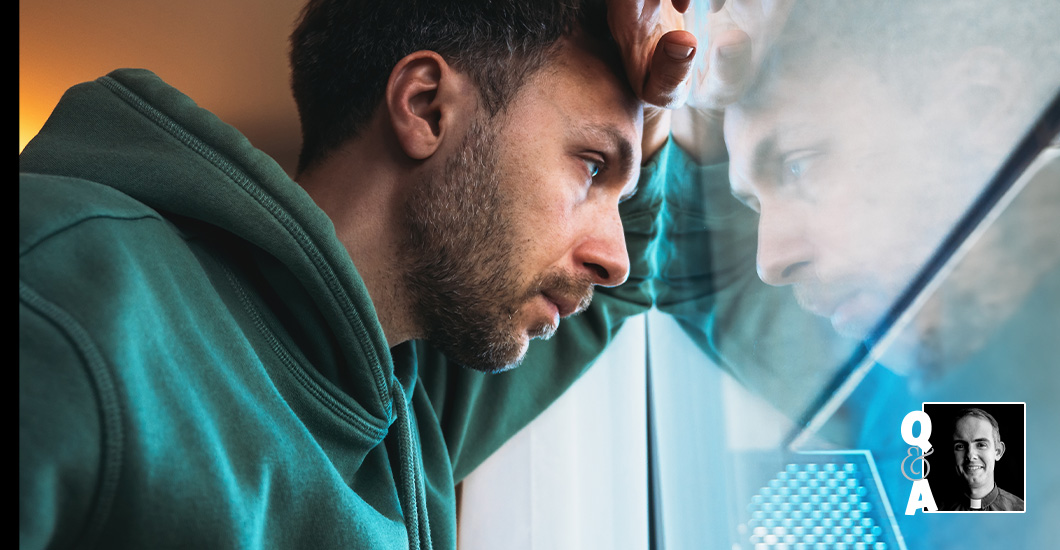
Question: I have been suffering from depression for a few years; others sometimes tell me that this is because of a lack of faith. I also often feel that they may be right, as I find it difficult to pray or even hold on to faith. How am I, as a practicing Christian, supposed to deal with this?
Answer: There is much overlap and interconnectedness between the psychological and the spiritual. What we think affects our soul and our spiritual state, often impacts our inner peace and well-being.
With that said, the two are NOT the same. It is entirely possible to be tremendously close to God, even growing in holiness, and still be plagued with a mental illness. So how do we know the difference?
This is where a Christian counselor or therapist, and a spiritual director, can be very helpful. It is hard to self-diagnose mental illness—most find it necessary to have a Christ-centered professional evaluate your struggles to see the roots. Frequently, to tackle underlying issues, mental health issues need to be addressed through a combination of both psychological and spiritual treatment together.
To seek help does not indicate a lack of faith! Would we treat a bodily disease in that way? Would someone who is suffering from cancer be told that they ‘haven’t prayed for healing with enough faith?’ Or would we tell someone who needs major surgery that visiting a doctor would be a lack of faith? On the contrary. God often works His healing through the hands of doctors and nurses; this is equally as true for mental illness as for physical illness.
Mental illness can be caused by a myriad of factors—biochemical imbalance, stress or trauma, unhealthy thought patterns….Our faith recognizes that God often works to heal us through the psychological sciences! In addition to seeking help, though, I recommend three things that can help bring about healing.
1. Sacramental and Prayer Life
Mental illness can make it difficult to pray, but we must persist. Much of prayer is just showing up! Saint John of the Cross would record in his spiritual journal what happened to him during prayer, and for years he wrote only one word every day: “Nada” (Nothing). He was able to reach the heights of holiness even when nothing ‘happened’ in his prayer! It actually shows deeper faith if we are faithful to prayer despite dryness and emptiness—because it means that we truly believe since we are acting in accordance with what we know (God is real and He is here, so I pray…even if I feel nothing).
Of course, Confession and the Eucharist are great help to our mental lives as well. Confession helps to free us from guilt and shame and the Eucharist is a powerful encounter with the love of God. As Mother Teresa once said: “The Cross reminds me of how much God loved me then; the Eucharist reminds me of how much God loves me now.”
2. The Strength of God’s Promises
One can change our ‘stinking thinking’ by the positive promises of God. Whenever we feel worthless, we must remember that “He chose us in Him before the foundation of the world” (Ephesians 1:4). If we feel like life is getting us down, remember that “all things work for good for those who love God” (Romans 8:28). If we feel alone, remember “He will never leave you or forsake you” (Hebrews 13:5). If we feel like life has no purpose, remember that our life is meant to glorify God (Isaiah 43:6-7) so that we might enjoy Him forever (Matthew 22:37-38). Grounding our life on the truths of our Faith can help to counter the lies that so often entrap our mind in mental illness.
3. Works of Mercy
Performing works of mercy are powerful boosts to our mental health. Many times, we can be ‘trapped in ourselves’ through depression, anxiety, or traumatic experiences; volunteering helps us to get out of that solipsism. Science has proven that doing good to others releases dopamine and endorphins, chemicals that lead to a sense of well-being. It gives us meaning and purpose and connects us to others, thereby decreasing stress and giving us joy. It also fills us with gratitude to work with those in need, as it makes us realize God’s blessings.
In summary, your mental health struggles are not necessarily a sign that you lack faith. You are certainly encouraged to see a Christian therapist to find how to improve both your spiritual and mental health. But also remember that your faith can give you tools to deal with mental health. And even if the struggle continues, know that your sufferings can be offered up to the Lord as a sacrifice, giving Him a gift of love and sanctifying you!
'
Silence is difficult even for adults, so imagine my surprise when I was instructed to train kids in that language!
Catechesis of the Good Shepherd (CGS) is a Catholic catechetical model developed by Sofia Cavalletti in the 1950s, which incorporates Montessori education principles. One of the pioneering aspects of Dr. Maria Montessori’s work was her cultivation of times of silence for her children. In Dr. Montessori’s Own Handbook, she explains: “When the children have become acquainted with silence … (they) go on to perfect themselves; they walk lightly, take care not to knock against the furniture, move their chairs without noise, and place things upon the table with great care … These children are serving their spirits.”
Each Sunday morning, anywhere between ten and twenty children, aged between three to six, gather in our atrium for catechesis. In CGS, we say ‘atrium’ rather than a classroom because an atrium is a place for community life, prayerful work, and conversation with God. During our time together, we make time for silence. The silence is not stumbled upon but purposefully made. It is also not a tool for control when things get noisy; it is regularly prepared for. This is what I have especially learned from these children.
True silence is a choice.
Practise Makes Perfect
In the CGS atrium, we speak about ‘making silence.’ We don’t find it, we aren’t surprised by it. With a regular routine, with intention and attentiveness, we make silence.
I didn’t realize how little silence was in my life until I was asked to purposefully make silence each week. This is not for a long time, only fifteen seconds to a minute, two at the most. But in that brief period, my entire focus and goal was making my whole self to be still and silent.
There are moments in my everyday routine where I might encounter a period of quiet, but the silence itself was not the goal of the moment. I may be driving in the car alone, perhaps a few minutes of quiet while my children read or are otherwise occupied in another area of the house. After reflecting on the practice of making silence, I have begun distinguishing between ‘found quiet’ and ‘made silence.’
Making silence is a practice. It involves not only pausing one’s speech but also one’s body. I am sitting in silence as I type these words, but my mind and body are not still. Perhaps you are sitting in silence while you read this article. But even the act of reading negates the making of silence.
We live in a very busy world. Background noise abounds even when we are at home. We have timers, televisions, reminders, music, vehicle noise, air conditioning units, and doors opening and closing. While it would be lovely to be able to enclose ourselves in a soundproof room to practice making silence in the utmost quiet, most of us do not have such a place available. This does not mean we cannot make authentic silence. Making silence is about quieting ourselves more than insisting on quiet in our environment.
The Art of Listening
Making silence provides the opportunity to listen to the world around you. By stilling our body, stilling our words, and as best we can, stilling our minds, we are able to listen with greater attentiveness to the world around us. At home, we more readily hear the air conditioning unit working, which gives us the opportunity to be thankful for its cooling breeze. When outdoors, we hear the wind rustle the leaves of the trees or can appreciate more fully the birdsong around us. Making silence is not about the absence of other sounds, but about discovering silence and stillness within your own self.
As people of faith, making silence also means listening with the ears of our hearts for the whispering of the Holy Spirit. In the atrium, every so often, the lead catechist will ask the children what they heard in the silence. Some will answer with the things one might expect. “I heard the door close.” “I heard a truck drive by.” Sometimes, however, they astonish me. “I heard Jesus say I love you.” “I heard the Good Shepherd.”
We can learn a great deal from making silence. Practically speaking, we learn self-control and patience. But even more importantly, we learn to rest in the beauty of the truth of Psalm 46:10, “Be still and know that I am God.”
'
Q – I don’t feel God’s presence when I pray. Am I making any progress in the spiritual life if I don’t feel close to Him?
A – If you struggle to feel God’s presence in your prayer life, you are in good company! Most of the great Saints went through a time of dryness. Mother Teresa, for example, went for thirty-five years without feeling His presence. Every day, for years, when Saint John of the Cross would record in his journal what spiritual insights or inspirations he received in prayer, he would write one word: “Nada” (“Nothing”). Saint Therese of Lisieux wrote this about her darkness: “My joy consists in being deprived of all joy here on earth. Jesus does not guide me openly; I neither see nor hear Him.”
Saint Ignatius of Loyola called this experience ‘desolation’—when we feel like God is distant, when our prayers feel hollow and that they are bouncing off the ceiling. We feel no delight in the spiritual life, and every spiritual activity feels like it’s a chore and a slog uphill. It is a common feeling in the spiritual life.
We must be clear that desolation is not the same as depression. Depression is a mental illness that affects every part of one’s life. Desolation specifically impacts the spiritual life—a person going through desolation still enjoys their life overall (and things might be going very well!) but is only struggling in the spiritual life. At times the two come together, and some people might experience desolation while experiencing other types of suffering, but they are distinct and not the same.
Why does desolation happen? Desolation can have one of two causes. Sometimes desolation is caused by unconfessed sin. If we have turned our back on God, and perhaps we are not acknowledging it, God may withdraw a sense of His presence as a means to draw us back to Him. When He is absent, we may thirst for Him more! But many times, desolation is not caused by sin, but is an invitation from God to pursue Him more purely. He takes away the spiritual candy, so that we seek Him alone and not just good feelings. It helps purify our love for God, so that we love Him for His own sake.
What do we do in a time of desolation? First, we ought to look into our own life to see if we do need to repent of any hidden sin. If not, then we must persevere in prayer, in sacrificing, and with our good resolutions! One should never give up praying, especially when it’s difficult. However, it might be helpful to diversify our prayer life—if we always pray the Rosary daily, maybe we should go to Adoration or read Scripture instead. I have found that a wide variety of different prayer practices can provide God many different avenues to speak and move in my life.
But the good news is that faith is not feelings! Regardless of what we ‘feel’ in our relationship with God, it is more important to stand upon what He has revealed. Even if we feel He is distant, we remember His promise that “I am with you always, to the end of the age.” (Matthew 28:20) If we are struggling to motivate ourselves to pray or practice virtue, we stand on His promise that “no eye has seen, nor ear heard, nor the human heart conceived, what God has prepared for those who love Him.” (1 Corinthians 2:9) When we are struggling to find God’s presence because of sufferings that have befallen us, we remember His promise that “We know that all things work together for good for those who love God.” (Romans 8:28) Our faith must be grounded on something deeper than whether or not we feel His presence.
Conversely, feeling close to God is not always a guarantee that we are in His good graces. Just because we ‘feel’ that a choice is right does not make it correct if it goes against God’s law that He has revealed through the Scriptures and the Church. Our feelings are not the same as our faith!
Desolation is a struggle for every Saint and sinner as we continue through the spiritual life. The key to making progress is not feelings, but rather persevering in prayer through the deserts, until we come to the promised land of God’s abiding presence!
'
As a cradle Catholic, I was taught that forgiveness is one of the cherished values of Christianity, and yet I struggle to practice it. The struggle soon became a burden as I started focusing on my inability to forgive. During Confession, the priest pointed to the forgiveness of Christ: “He did not just forgive them, but he prayed for their redemption.” Jesus said: “Father, forgive them, for they do not know what they are doing.” This prayer of Jesus reveals an often-neglected fragment. It clearly unveils that the gaze of Jesus was not on the pain or the cruelty of the soldiers but on their lack of knowledge of the truth.
Jesus picked this fragment to intercede for them. The message dawned on me that my forgiveness has to sprout from giving space to the unknown fragments of the other person and even myself. I now feel lighter and more joyful because previously, I was dealing exclusively with the known factors—the hurt that others caused, the words that they spoke, and the brokenness of hearts and relationships. Jesus has already left the gates of forgiveness wide open for me, I just have to tread on this path of humbly acknowledging the unknown fragments within myself and others.
The awareness of the unknown fragments also adds layers of meaning to what Jesus means when He invites us to walk the extra mile. It occurred to me that forgiveness is a journey commencing from the act of forgiveness to an honest intercession. This moment of walking the extra mile, by praying for the good of those who have hurt me, is my walk through Gethsemane. And this is my total surrender to His will. He has lovingly called everyone to eternity and who am I to cause a barrier with my ego and resentment? Opening our hearts to unknown fragments mends our relations with one another and leads us to a deeper relationship with God, giving us and others access to His abundant peace and freedom.
'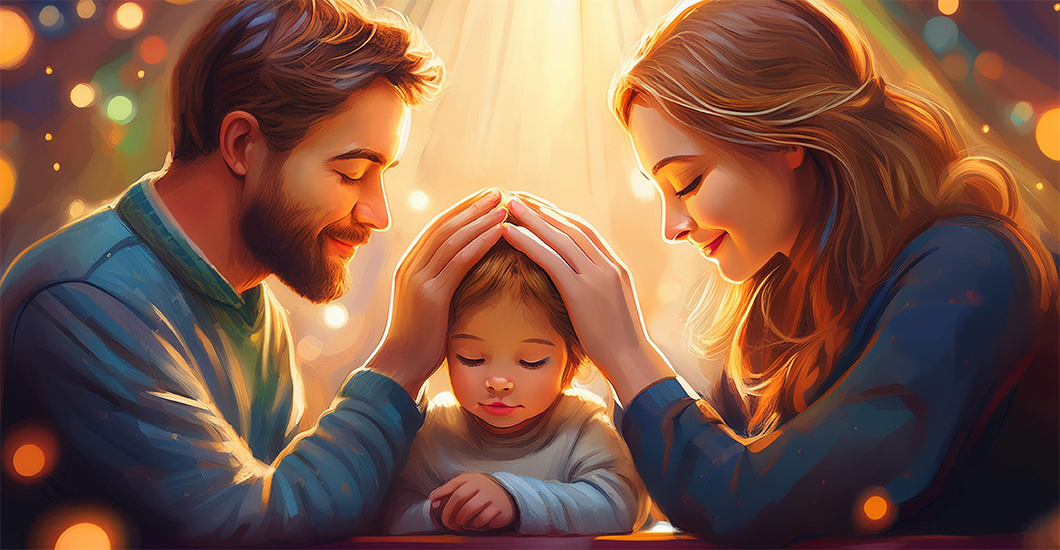
When was the last time you placed your hands on your child’s head, closed your eyes, and wholeheartedly prayed for them? Blessing our children is a powerful act that can shape their lives in profound ways.
Biblical Examples: “David went home to bless his household.” (1 Chronicles 16:43) This simple act highlights the importance of speaking positive words over our loved ones.
The Lord said to Moses: “This is how you are to bless the Israelites: ‘The Lord bless you and keep you; the Lord make His face shine on you and be gracious to you; the Lord turn His face toward you and give you peace.’” (Numbers 6:22–26) These words convey God’s protection, favor, and peace.
Encouragement and Exaltation: When we bless someone, we encourage them, lifting them up with positive affirmations. At the same time, we exalt God by acknowledging His goodness and grace. Blessings create a positive atmosphere where children feel loved, valued, and secure.
Imparting Identity: Blessings help shape a child’s identity. When parents speak words of blessings over their children, they affirm their worthiness and purpose. Children internalize these messages, carrying them into adulthood.
The Power of Words: In a study of team performance, Harvard Business School found that high-performing teams received nearly six positive comments for every negative one. Blessings go even further than positive comments. When we bless someone, we declare truth over them—God’s truth! Children are like sponges, absorbing messages from their environment. By blessing them, we provide a counterbalance to the negative influences they encounter.
As parents or caregivers, we have a responsibility to bless our children—speaking life-giving words that build them up emotionally, spiritually, and mentally. Be cautious not to curse them inadvertently through negative comments or harmful attitudes. Instead, intentionally bless them with love, encouragement, and God’s truth.
'
One cold childhood night, my father taught me how to rebuild a fire…
Be it an unseasonably crisp fall evening, the fragrance of smoke pouring out of an often-used chimney, an array of fall foliage colors, or even the tone of someone’s voice, these seemingly infinitesimal sensory details often spark the vivid remembrance of a moment long ago.
Why do we have such memories? Do they serve as a way of avoiding previously made mistakes? Did God give us memories so that we might have roses in December? Or might it be something much more profound? Are they seeds of contemplation that we are meant to dwell on, ponder, prayerfully reflect on, and contemplate?
‘Warm’ Love
When I was nine, maybe ten, my family and I arrived home on an unseasonably cold fall night. My mother immediately requested that my father rebuild the fire. This being a favorite pastime of mine, I eagerly stood by to watch. While other fire-building occurrences remain a haze of insignificant details, this one lives vividly in the depths of my mind. I even remember it verbatim.
He opened the wood stove, picked up the poker, and started clearing away ash. Curious, I remember asking: “Why do you clear away all the ash?” Immediately, my father answered: “By removing the ash, I am killing two birds with one stone. I isolate any embers while simultaneously allowing oxygen to flow more freely.”
“Why is that so important?” My father stopped his work and looked at me, balancing on his toes in a crouched position. Moments passed as he considered my question. He then called me close. As I approached, he handed me the poker and almost whispered: “Let’s do this together.”
Feel the Difference
I took the metal rod, and he guided me in front of him. He wrapped his hands over mine and started to guide my movements. The ash continued to fall through the grate, and what was left behind was a small pile of embers. My Father asked me: “Do you feel much heat?”
I laughed and said: “No Dad! Of course not!”
My father chuckled, then responded: “I imagine not! Certainly, as they are, they are not going to heat the house, but notice what happens when I do this.” He put the poker down, positioned himself closer to the stove, and began to blow hard onto the embers. They suddenly began to glow a fiery red. My father then said: “Here, you try.” I emulated his actions and blew as hard as I could. Likewise, the embers turned a vibrant red for the briefest of moments. My father asked: “You see the difference, but did you also feel the difference?”
Smiling, I answered: “Yea! It was warm for a second!”
“Exactly,” my father interjected: “We clear the ash so that oxygen can fuel the embers. Oxygen is absolutely necessary; the embers burn brighter, as you saw. We then fuel the fire with other small flammable items, starting small and then moving on to bigger items.”
My father then instructed me to get newspapers and small sticks from the kindling box. He meanwhile went to the side porch and collected several boards and larger logs. He then crumpled the newspaper and laid it on the small pile of embers. He then instructed me to blow on the pile as I had done before. “Keep going! Don’t stop! Almost there!” my father encouraged, until quite suddenly, and just as surprisingly, the newspaper caught fire. Startled, I jumped back a little but was then calmed by the burst of warmth I also felt.
At that moment, I remember smiling from ear to ear, and my father, also smiling, instructed: “Now, we can start adding slightly larger items. We’ll start with these twigs and such. They’ll catch fire like the paper did. Observe…” Sure enough, after a few moments, the sticks were burning. The heat was significant. My father then added small logs, and old fence boards, and waited as before. I had to back up because the heat was unbearable up close. Finally, 30-40 minutes later, the fire was literally roaring as my father put in the largest of logs. He said: “With these, the fire will burn several hours into the night. You have learned that the hardest part is getting the fire going. Once ablaze, it is easy to keep it going as long as you feed it and allow the oxygen to fan the flames. A fire without oxygen, without fuel, will be extinguished.”
To Remember…
The desire for God is written in the human heart. The fact that humans are made in the likeness and image of God results in an ember, a desire for happiness that lies in each of us. This ember can never be extinguished, but if left uncared for, leaves its owner unhappy and without purpose. Clear away the ashes (through Baptism), and we allow God’s love to fan the flame. Our deepest desire starts to be oxygenated, and we begin to feel the effects of God’s love.
As God’s love stimulates the fire within to grow, it requires sustenance—an active daily choice to kindle the flame. The Word of God, prayer, the Sacraments, and works of charity keep the flame well nurtured. Left unaided, our flames reduce once more to a struggling ember, starving for the oxygen only God can provide.
Our free will allows us to say ‘Yes’ to God. This not only fulfills our innate individual desire for happiness but our ‘Yes’ can even ignite someone else’s desire for conversion, giving validity to Saint Ignatius’s words: “Go forth and set the world on fire.”
'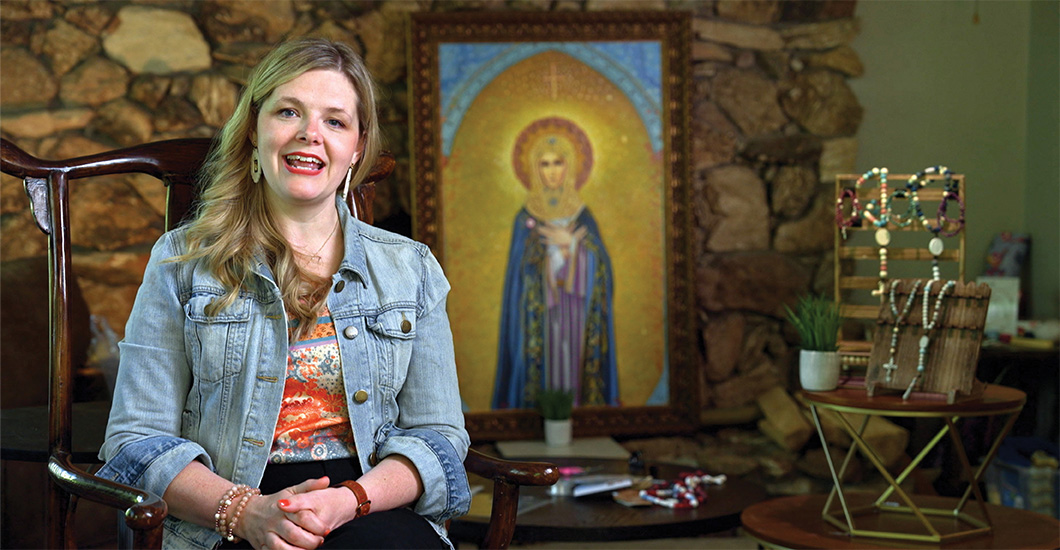
Disconnected from God, wallowing in despair…yet in the dark void of my life, ‘someone’ unexpectedly reached out to me.
Three miscarriages in a row…Each one of those losses, emotionally more and more difficult, medically more complicated, and the recovery process more and more drawn out. After the third, I found myself in this incredibly dark season of deep depression.
I was so angry at the Lord for allowing these trials to happen in my life. Why would He let this happen to a good Catholic who has been trying to do all the right things?
I gave the Lord the silent treatment for about 18 months. We continued to be dutiful Catholics—going through the motions, continuing to go to Mass, saying our prayers before meals…just checking the boxes. But in my heart, I wasn’t praying at all, except for this one honest prayer I repeated at heart: “I belong to You. I don’t like what You’re doing, and I don’t understand any of this, but the only thing worse than what I am feeling right now would be to be completely without the hope of Heaven, without the hope of ever seeing the little ones that I lost…” So, I made this bargain with God: “If I keep doing the right things, You should hold up Your end of the bargain; at the end of my life, You’ll let me into Heaven, to see the little ones that I lost.”
But I was spiraling down. Disconnected from God, I was no longer a good mother or a good friend. My small business had to be shut down because I couldn’t keep up with life’s demands anymore. Through this void, someone reached out to me, an unexpected ‘someone!’
Yelling at God
The Rosary used to be a daily prayer through high school and early college, but once I got married and the kids started coming, I put the rosary up on a shelf and thought: “That’s a prayer for people who have a lot of time and I certainly have none; so maybe later, when I get a little older, I’ll take it back down off the shelf.” But in the deep darkness, I began feeling a call back to praying the Rosary. It felt totally ridiculous because I was still very very angry at the Lord, and I had no desire to pray. With four little kids, I didn’t have the time. So, I kept pushing it off and out of my mind, but the Lord began to get more and more persistent.
I’d unexpectedly find cues in the most unlikely places—a rosary I’d never seen before turned up in my locked car, my toddler handed me my confirmation rosary that I hadn’t seen in years, random people who weren’t even Catholic would just give me rosaries (like this time when someone gave me as rosary and said: “I was cleaning out my grandma’s desk and I thought you would want this”).
I got to the point where I could no longer deny what the Lord was asking of me. For the first time in 18 months, I said a prayer. A more honest expression would be, I yelled at God; it was this very snarky prayer. I marched into the church, straight up to the altar, and flopped down all my excuses—I couldn’t find the time to pray the Rosary, most times I couldn’t even find any of my rosaries, and if I do manage to find time AND find the rosaries, my kids would keep interrupting me, I had trouble picking up where I left off…not to mention, my kids would have probably already broken all the rosaries that I have! I didn’t even wait for a response from the Lord, I just spun on my heel and marched out of the church, feeling: “See, I told you, it’s ridiculous to pray the Rosary.”
Nothing Better Than This
Within a week of that, I was inspired to design a rosary bracelet which literally solved every single one of those excuses that I had given. It’s always right on hand so I never forget to pray, it’s super-sturdy so my kids can’t break it, but the really life-changing, revolutionary part was the movable crucifix charm that works like a little bookmark which enabled me to pick up from where I left off. I’d pray in the quiet moments that were hidden through my day. In between taking care of the kids, doing chores, and running errands, I could always find a minute here or 10 minutes there to get a couple Hail Marys or sometimes even a whole decade in.
Little by little, throughout the day, I began to get an entire Rosary in. I was still very angry and broken and did not have a lot of hope that the Rosary would fix it all, but I was just so tired that I knew this couldn’t hurt. I was desperate—there was nothing better to do, so I felt I might as well try this.
Healing didn’t just happen. It wasn’t a tele-evangelist healing moment where the skies just parted and glory came down. It was this very slow journey, the same way we pray the Rosary, bead by bead, step by step, prayer by prayer. Little by little, Our Lady began to really be a mother to me. What I began to see in that darkness was not the Mary that I grew up seeing—the Nazareth Mary or Christmas-card, 20-something-Mary with flawless skin. Instead, I found Mary at Calvary, a tear-streaked, blood-stained, road-weary mother who knew what it was like to suffer and lose someone that she dearly loved. This woman, I could relate to! This mother, I so badly needed in this season of my life.
Afterall, she wasn’t the one I was angry at. But she, as my mother, ever so gentle, came into this raw and broken place I was in and walked me slowly out into the arms of my Heavenly Father. But that was just one part; there was another part of my life that was still in chaos.
A Conversation Ensues
The third miscarriage had been physically and emotionally too difficult; since it was the second trimester, we had to go to the hospital, go through labor, and deliver our son.
From there, my husband and I took different paths of grief. I shut down and withdrew, and he poured himself into work, drinking, and overindulging in a lot of ways. Our relationship became fractured.
When I began praying the Rosary and started on my road of healing, I tried to encourage him as well, but he pushed it off. I slowly opened the shop back up, put the rosary bracelet that the Lord inspired into the shop and that began to really take off. I kept asking him to join me; I gave him a rosary bracelet that he began to wear, but he wasn’t praying with it. That was when I began very intentionally to pray my Rosary every day, for him.
I would intentionally use those quiet moments to pray and let my family see that I was praying amid and between my chores. My husband began to see not only this but also the change in me. Slowly, he gave in and our whole family began to experience this reconversion through Our Lady. But you see, that was not the happy ending.
An Embrace Follows
In came another miscarriage! The same hospital room, the same nurse…I’d ask Him: “Lord what are you doing? Why are you adding salt to the wound by replaying the most horrible day of my life?”
This was deeper and worse than before because I was also living through the trauma of some of those other losses. But in spite of this, I began to slowly see through that incredibly awful day in so many ways. As I was laboring and delivering, I was totally overwhelmed with grief and helplessly sobbing. But this time, instead of feeling completely alone, I felt the physical presence of Our Lady holding me like a mother would as I was crying. In the most painful part of labor, I felt Our Lady physically hand me over to God the Father and put me in His arms like His child. I felt, in that moment, God the Father sobbing along with me. I felt His chest heaving along with mine.
I am not exactly ‘there’ yet. In some ways, I’m still on this healing journey, with this wound and all the anger that I carried…Our Lady came in as my mother to help heal my relationship with Our Father. For her to show His heart to me was just this incredibly healing and restorative process. A day which would have been one of the worst days of my life, because of her goodness and gentleness, became a healing day for us in a way that I never could have imagined.
'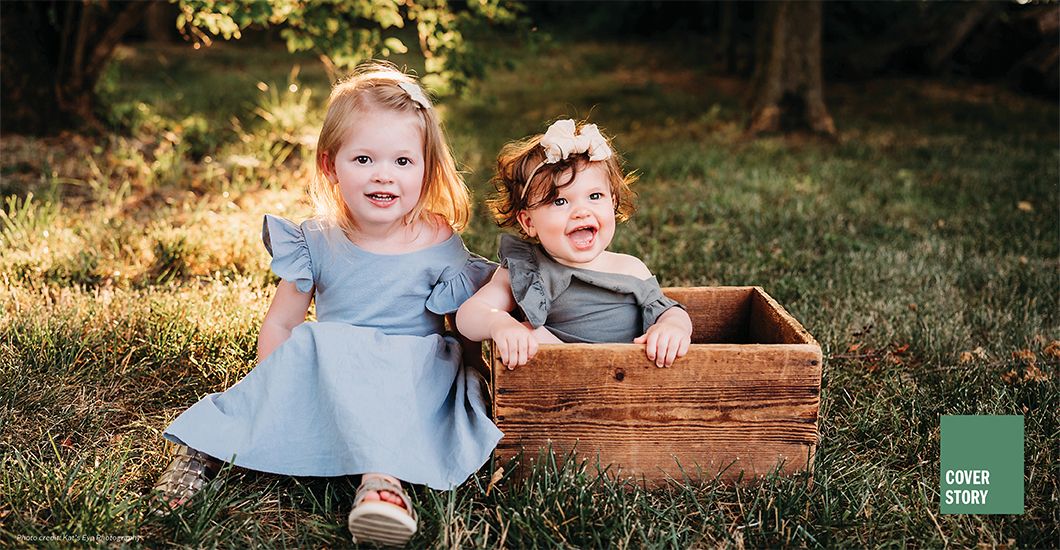
Life can be unpredictable yet God never fails to surprise you.
Almost three years ago, I wrote an *article for this very magazine in the midst of grieving the loss of our baby. My husband and I had been married for nearly two years and had been praying for a baby the whole time. There was so much excitement and joy when we found out that I was pregnant that we never could have anticipated the forthcoming loss in miscarriage.
We were right there in the thick of it, being challenged to trust God and His mysterious plans. To be honest, I didn’t want to trust in a plan that resulted in grief, and I didn’t want to hope in a God who would permit it either. I wanted our baby in my arms. But my husband and I did choose the difficult path of trusting God and His Providence, that all of the pain and suffering could and would still be used for good. We chose hope for our baby in Heaven and hope for our future here on Earth.
Above All
Countless times in my life, the 11th verse of Jeremiah 29 has anchored me deeply. This time, however, He led me to focus on what follows. Those words have been seared into my heart and convinced me of God’s abiding providence. “When you call Me and come and pray to Me, I will listen to you. When you look for Me, you will find Me. Yes, when you seek Me with all your heart, I will let you find Me, and I will change your lot…”
Our loving Father was calling me closer when I really didn’t feel like drawing closer. Call, Come, Pray, Look, Find, Seek, He said. He asks me (and you)—in the ache of our hearts when we are tempted to believe that the hurt we are experiencing is all there really is for us—to choose Him, to draw closer to Him. Then, when we have sought Him out, He promises to let us find Him and to change our lot. He isn’t ambivalent about it; He uses the phrase ‘I will’ three times. He doesn’t say maybe, He is matter of fact.
A Double Blessing
Although it has been three years since our miscarriage, I was recently reminded of how this promise of Jeremiah 29 has manifested itself in my life and how God has absolutely changed my lot in terms of motherhood. He has made me and my husband witnesses, and the way in which He so lovingly answers prayers should not be forgotten or glossed over. Not long ago, I received an email from a kindred spirit and friend. After holding me in prayer that morning, she wrote: “God did recompense…Here you are, celebrating the Mercy and Love of God with a double blessing! Praise God!”
Our hope and desire to trust in God’s plans and to seek Him has changed our lot and transformed into the biggest ‘double blessing of recompense’ we could have dreamt of—two beautiful baby girls. It’s been three years since my husband and I walked through the loss of our first baby, and nothing could ever replace that little one, but God did not leave us barren.
In August 2021, we were blessed with the delivery of our first baby girl, and this past August, we saw the blessing of our second baby girl. A double blessing, indeed! We are living out God’s faithfulness through our hope transformed! We are witnesses to God’s unfathomable mercy and love. We have become co-creators with the Creator, and through our hope in His faithfulness, He has changed our lot, indeed.
I am in awe of the wonders God does and encourage you to bolster up your hope in the Lord as well. Hold fast to a hope that transforms, seek Him with all your heart, and watch Him change your lot just as He promises.
As my friend told me that day: “Let us always bless the Lord who has been so gracious to us.”
'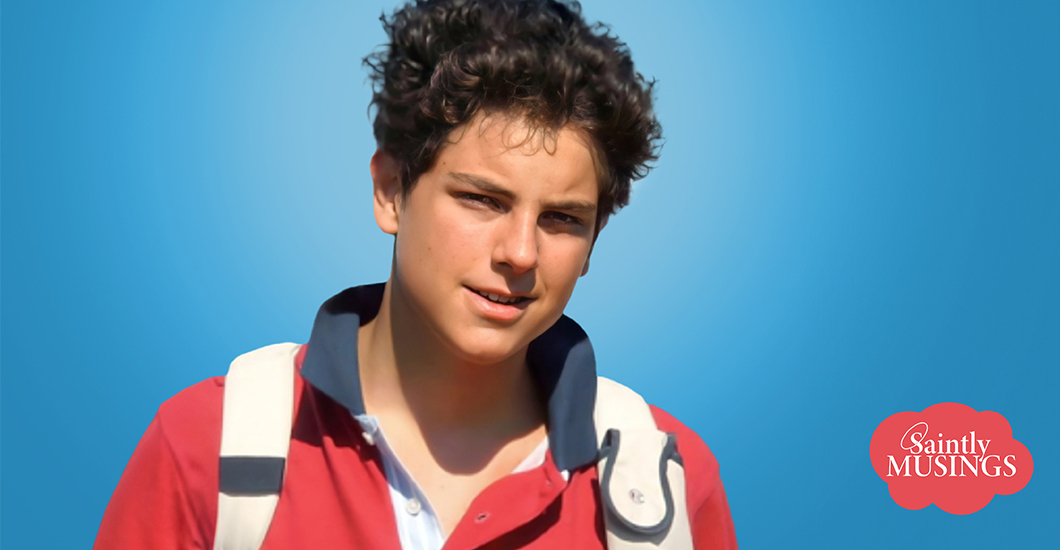
When Andrea Acutis arranged a pilgrimage to Jerusalem, he thought that his son would be excited. Carlo was keen on going to daily Mass and reciting his prayers, so his reply came as a surprise: “I prefer to stay in Milan … Since Jesus remains with us always, in the Consecrated Host, what need is there to make a pilgrimage to Jerusalem to visit the places where He lived 2000 years ago? Instead, tabernacles ought to be visited with the same devotion!” Andrea was struck by this great devotion that his son cherished for the Eucharist.
Carlo was born in 1991, the year the World Wide Web was invented. The little genius walked when he was just four months old, and started reading and writing at the age of three. The world would’ve looked at his intellect and dreamt of a bright future but the Divine had different plans. Combining his love for the Eucharist and technology, he left the world a great legacy of a record of Eucharistic miracles from across the world. He began the collection in 2002 when he was just 11 years old and completed it a year before he succumbed to leukemia. This young computer geek, at such a young age, even built a website (carloacutis.com), a lasting record, with all the collected information.
The Eucharistic exhibition he pioneered was held in five continents. Ever since, many miracles have been reported. On his website, he has written the lasting mission of his life on Earth: “The more Eucharist we receive, the more we will become like Jesus, so that on this Earth, we will have a foretaste of Heaven.”
This Italian teenage designer and computer whiz is soon to become Saint Carlo Acutis. Widely known as the first millennial patron of the internet, Blessed Carlo continues to draw millions of youngsters to the love of Jesus in the Eucharist.
'
A gift that you can access from anywhere in the world, and guess what? It’s free not just for you but for everyone!
Imagine that you are lost in a deep pit of darkness and hopelessly groping around. Suddenly, you see a great light and someone reaching out to rescue you. What a relief! The overwhelming peace and joy can’t be fully expressed in words. The Samaritan woman felt like this when she met Jesus at the well. He told her: “If you knew the gift of God, and who it is that is saying to you: ‘Give me a drink,’ you would have asked Him, and He would have given you living water.” (John 4:10) As soon as she heard these words, the woman realized that she had been waiting her whole life for this. “Give me this water, so that I may never be thirsty,” she implored: (John 4:15) It was only then, in response to her request and thirst for knowledge of the Messiah, that Jesus revealed Himself to her: “I am He, the One who is speaking to you.” (John 4:26)
He is the living water that quenches every thirst—the thirst for acceptance, the thirst for understanding, the thirst for forgiveness, the thirst for justice, the thirst for happiness, and most importantly, the thirst for love, God’s love.
Until You Ask…
The gift of Christ’s presence and mercy is available for everyone. “God proves His love for us in that, while we were still sinners, Christ died for us.” (Romans 5:8) He died for every sinner so that by the Blood of Christ, we may be cleansed from our sin and be reconciled with God. But, like the Samaritan woman, we need to ask Jesus.
As Catholics, we can easily do this through the Sacrament of Penance, confessing our sins and being reconciled with God when the priest absolves us from sin, using the power given by God to act in persona Christi (in the person to Christ). It gives me great peace to frequent this Sacrament because the more I do it, the more I become receptive to the Holy Spirit. I can feel Him speaking through my heart, helping me to discern good from evil, growing in virtue as I flee from vice. The more frequently I repent of my sins and turn back to God, the more sensitive I become to the presence of Jesus in the Holy Eucharist. I become conscious of His presence in those who have received Him in Holy Communion. I feel His warmth in my heart when the priest walks past me with the ciborium filled with the Consecrated Host.
Let’s be honest about it. Many people line up for Communion, but very few people line up for Confession. It is sad that many people are missing out on such a very important source of grace to strengthen us spiritually. Here are a few things that help me get the most out of Confession.
Be Prepared
A thorough examination of the conscience is necessary before Confession. Prepare by going through the commandments, the seven deadly sins, the sins of omission, the sins against purity, charity, etc. For a sincere confession, the conviction of sin is a prerequisite, so it is always helpful to ask God to enlighten us about certain sins we committed that are unknown to us. Ask the Holy Spirit to remind you of sins you have forgotten, or make you aware of where you have been unconsciously going wrong. Sometimes we delude ourselves into thinking that something is okay when it’s not.
Once we prepare well, we can again seek the assistance of the Holy Spirit to wholeheartedly admit our failures with a contrite heart. Even if we are not approaching confession with a perfectly contrite heart, it can happen during confession itself through the grace present in the Sacrament. Regardless of what you are feeling about certain sins, it’s good to confess them anyway; God forgives us in this Sacrament if we honestly admit our sins, recognizing that we have done wrong.
Be Honest
Be honest with yourself about your own weaknesses and failures. Admitting struggles, and dragging them out of the darkness into the light of Christ will relieve you of paralyzing guilt and bolster you against sins you tend to commit repeatedly (such as addictions). I remember once, in confession, when I told the priest about a certain sin that I just couldn’t seem to come out of, he prayed over me to specifically receive the grace from the Holy Spirit to help overcome it. The experience was so liberating.
Be Humble
Jesus told Saint Faustina that “A soul does not benefit as it should from the Sacrament of Penance if it is not humble. Pride keeps it in darkness.” (Diary, 113) It is humiliating to kneel in front of another human being and openly encounter the dark areas of your life. I remember receiving a very long sermon for confessing a grave sin once and getting reprimanded for repeatedly confessing the same sin. If I can learn to look at these experiences as the loving corrections of a Father who cares so much about your soul and willingly humble myself, those bitter experiences can become blessings.
The forgiveness of God is a powerful indication of His love and faithfulness. When we step into His embrace and confess what we’ve done, it restores our relationship with Him as our Father and we, His children. It also restores our relationship with one another who belong to one body—the body of Christ. The best part of receiving God’s forgiveness is how it restores the purity of our soul so that when we look at ourselves and others, we get to see God dwelling in all.
'